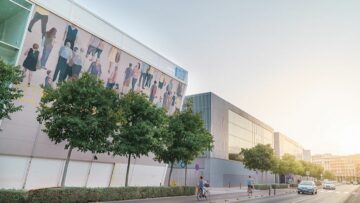Challenge(s)
How can new functions be defined in the port-city area to sustainably develop food logistics?
Good practice
Innovation and high-quality food
In addition to the symbolic value of transforming previously abandoned areas into the Port City's most innovative places, transitional spaces between the city and port are good locations for creative districts and innovation hubs in a world where responsiveness, forward-thinking, and flexibility are increasingly necessary. These spaces provide opportunities to increase the impact and influence that port cities can have on global challenges, such as food research and production. Valencia chose to develop such a research cluster and now hosts the World Sustainable Urban Food Centre.
This good practice also includes objective 7.3 (Promoting fair trade, organic and local productions through a tailored commercial policy) of the AIVP's 2030 Agenda.
Case study
The World Sustainable Urban Food Centre (CEMAS) in La Marina of Valencia is a space developed in partnership between the Valencia City Council and the Food and Agriculture Organisation of the United Nations (FAO) to transform the city into a leading hub on the topic. Its main mission is twofold: knowledge management and communication. The CEMAS has to manage knowledge in programs, projects, and actions for sustainable food in urban settings. This includes assessing policies against malnutrition, food production or avoiding food waste, tracking and monitoring projects and results, and participating in the database. Moreover, the CEMAS must communicate and disseminate relevant information and data for sustainable food and nutrition to reach the media and public opinion. The idea is to educate and inform about food and health issues, encouraging civil society participation through material for the media, fairs and exhibitions. This centre is hosted in La Marina as part of its innovation district, directly on the waterfront, implementing new uses in this part of the port city.
Amidst the various objectives of CEMAS, one of the key objectives is to harmonise and encourage civil society, the private sector, universities and local and regional authorities around the world to establish sustainable and healthy food systems based on citizens’ rights and the commitment to future generations and the fragility of our ecosystems. This is in line with the commitments made in the Rome Declaration on Nutrition through port cities. This is done through the establishment of technology partners, connecting cities, and through the sharing of good practices and knowledge.
Additional information
https://cemas.global/en/objectives/
https://www.lamarinadevalencia.com/mreal/web_php/index.php?lang=48

